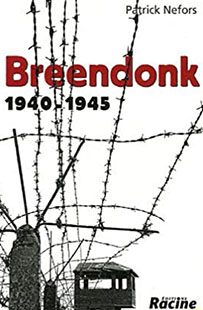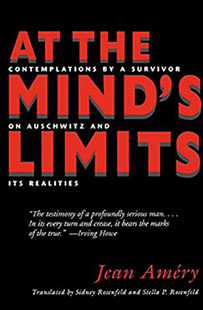Hardcover edition, 2015.Paperback edition, 2020. |
~~ Suggestions for Visiting Fort Breendonk ~~ ~~ ~~ Related Books by James M Deem: ~~ |
Visiting National Memorial Fort Breendonk
This sign greets visitors as they approach the parking lot at National Memorial Fort Breendonk
National Memorial Fort Breendonk is located north of Brussels, just off the Brussels-Antwerp highway (A12/N16) at the exit for Willebroek. If you drive, you can see the fort as you take the Willebroek exit. Look for the service road that leads to the parking lot (and a cafe). You can also take the train from Brussels or Antwerp, though this will involve a change of trains in Mechelen/Malines and a 20-minute walk from the station in Willebroek. I took this route frequently as I worked on my book. It is easier to reach the fort directly from Ghent or Mechelen, since there is a direct train line that stops in Willebroek; the train only runs once an hour, however, in each direction.
This map shows the route from the Station Willebroek to National Memorial Fort Breendonk:
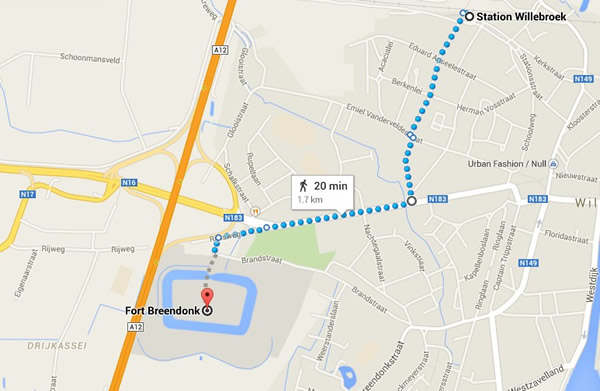
The camp housed about 3,600 known prisoners during World War II. Over a third died after they were transported to other concentration camps in Germany, Austria, Poland, and the Netherlands. Built between 1909 and 1914, it was surrounded by a moat and covered with tons of sand dug during the excavation of the moat. This sandy covering was intended to camouflage the fort and protect it from artillery shells during an attack. Prisoners incarcerated there during World War II were forced to remove the sand, as part of their meaningless duties.
Visitors can tour the entire fort complex, including the former barracks and workshops. Exhibits provide information about many of the prisoners and their Nazi tormentors. An audio guide is available. For further information about the camp, including fees and visiting hours, you can check the memorial's website.
![]()
Visiting Kazerne Dossin
If you visit National Memorial Fort Breendonk, you should also plan to visit Kazerne Dossin in nearby Mechelen.
This former military barracks was the site of the transit camp for Belgium (SS-Sammellager Mecheln). Most of Breendonk's Jewish prisoners were eventually sent to the transit camp after it opened in the summer of 1942.
In all, 25,031 Jews and 351 Roma were deported from Kazerne Dossin to Auschwitz-Birkenau during the two years that it was open. Most of them were sent directly to the gas chamber; only 1,217 Jews and 32 Roma from the transports survived the war.
These days, the former barracks has been converted into apartments. A museum and memorial has been built across the street. The exhibits include Albertine De Houwer's doll, made by her mother before she was transported to Auschwitz-Birkenau and murdered. The story of Albertine's mother, Charlotte Hamburger, is related in my book in Chapters 22 and 23. Albertine's father, Louis De Houwer, was one of the first prisoners executed at Breendonk; his story is told in Chapter 25.
From Breendonk, take the N16 to Mechelen, about nine miles.
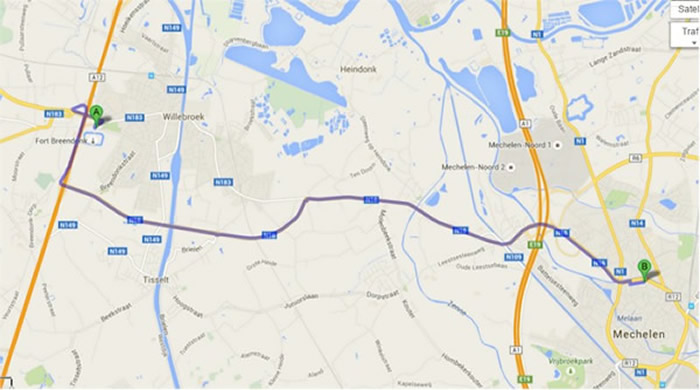
It is also easy enough to walk to Kazerne Dossin, if you take the train to the main Mechelen Station; the distance is about two kilometers.
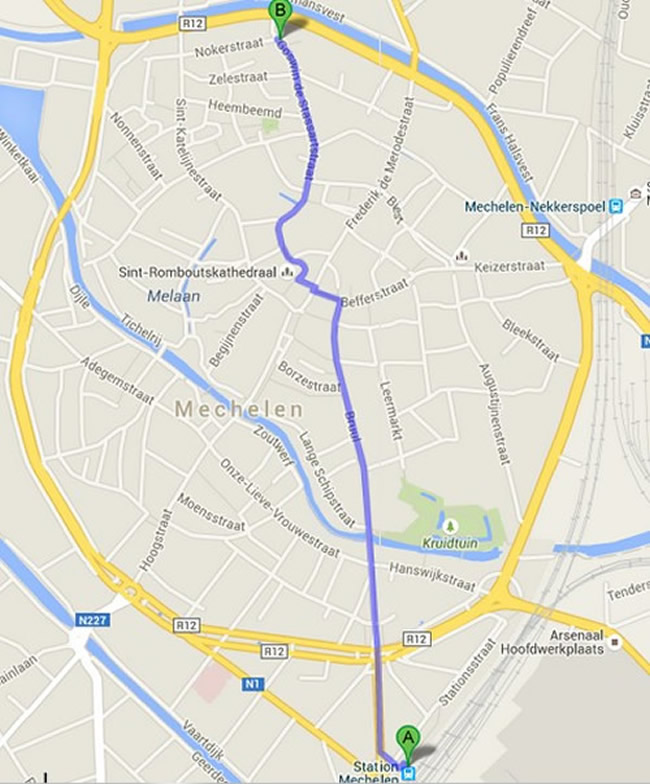
![]()

